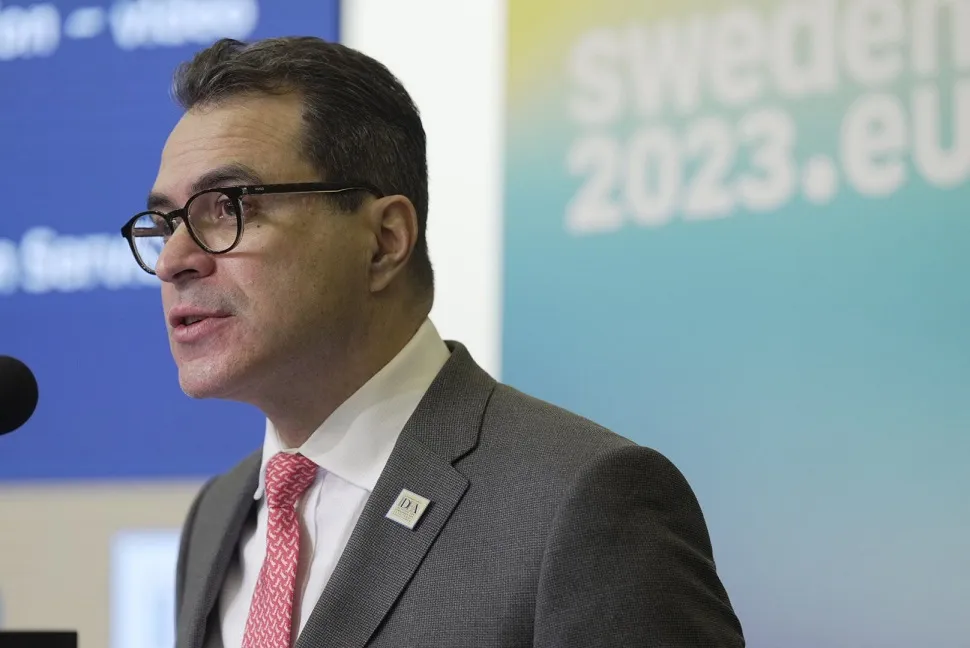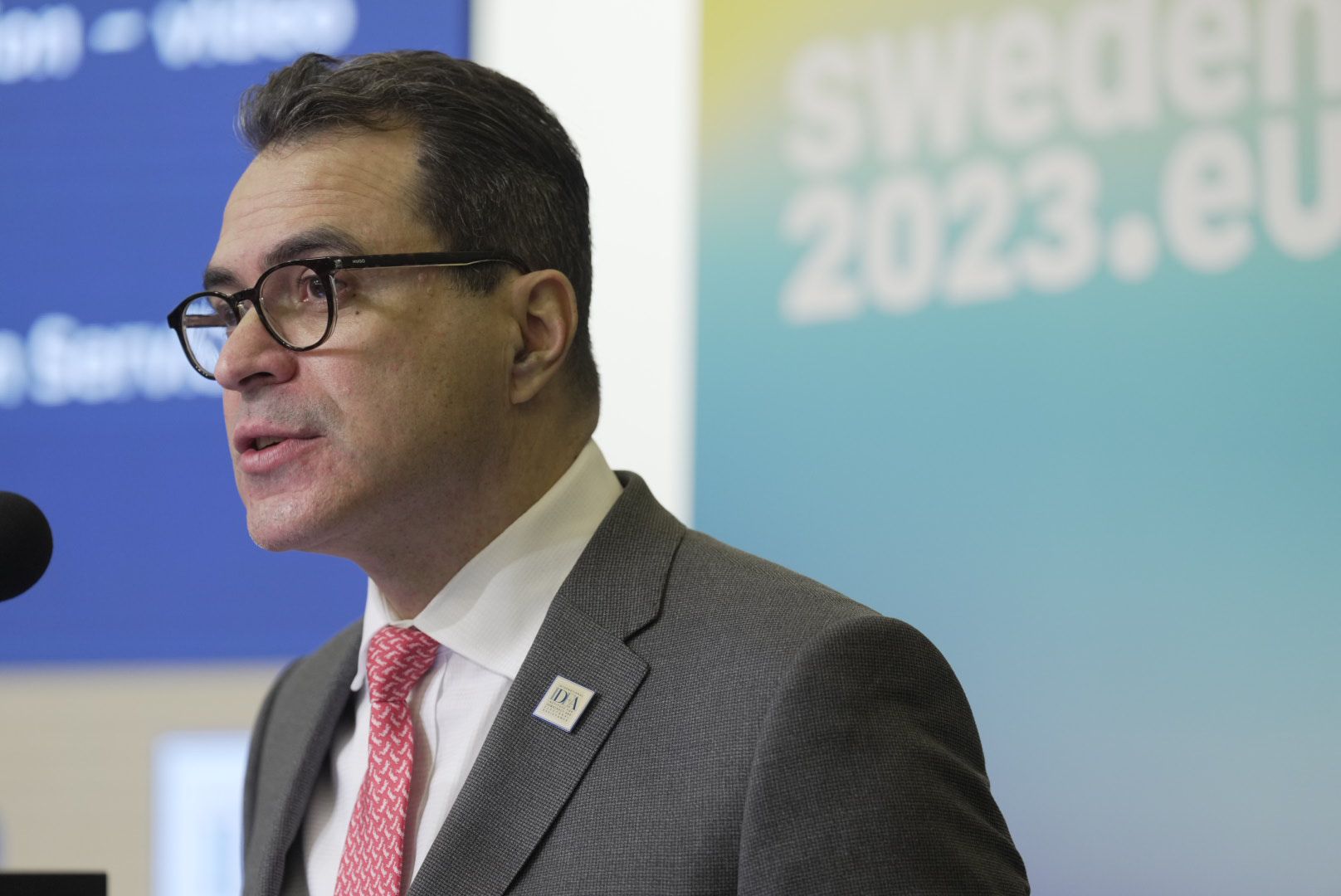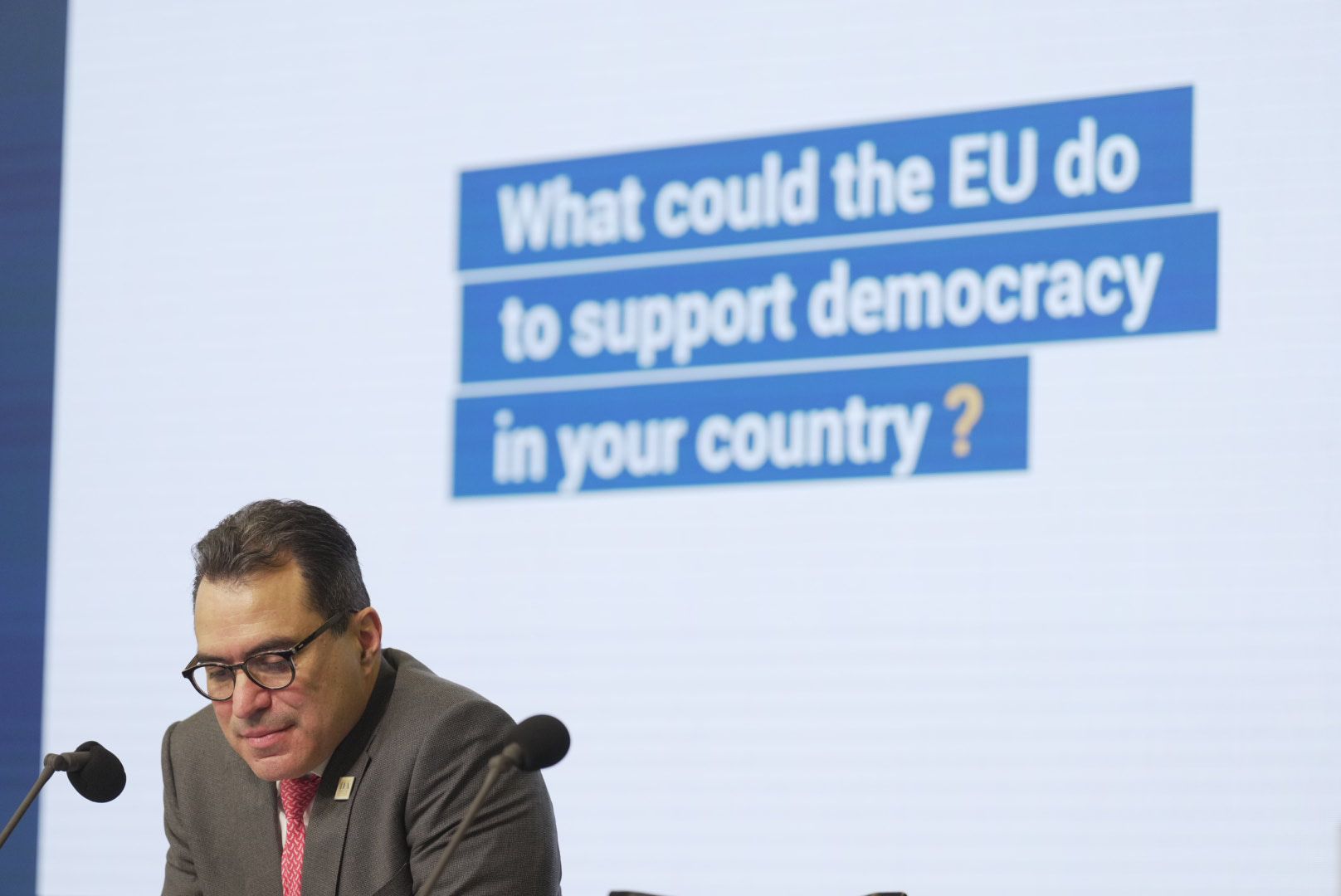International IDEA Secretary-General's keynote speech at 'The EU's External Democracy Action in a new geopolitical reality' Conference


Opening Remarks
THE EU’S EXTERNAL DEMOCRACY ACTION IN A NEW GEOPOLITICAL REALITY
Multi-stakeholder Conference and launch of Recommendations Report
31 January 2023
Good morning and welcome!
I’m Kevin Casas-Zamora, the Secretary-General of International IDEA, and I am honored to open this conference co-organized with our host country and founding Member State, Sweden—who, as you know, also currently holds the Presidency of the European Union.
So I would like to extend a special welcome to Ms Diana Janse, State Secretary to the Swedish Minister for International Development Cooperation and Foreign Trade. Thank you for being here with us today!
I am also honored to see Mr Eamon Gilmore, EU Special Representative for Human Rights, whom I just met a few days ago in Stockholm. Thank you for taking the time to participate in our conference!
I want to welcome all the remarkable speakers, experts and political leaders who have agreed to be part of this conference, as well as all Ambassadors, Representatives of EU institutions and Member States, Representatives of other countries, and the participants joining us in person and online.
Since I don’t know how many of you are familiar with International IDEA, let me just say that we are an intergovernmental organization, with 34 Member States, dedicated to supporting and advancing sustainable democracy globally. We are based in Stockholm but have offices around the world, including our EU and Regional Europe teams located here in Brussels, and we operate in more than 60 countries.
Across our work, the EU is a crucial partner and leading contributor. Our Member States include nine Members of the European Union. So I am very happy to be here, in the capital of Europe, in the first month of Sweden’s Presidency, to launch a report that showcases the enormous potential of the EU as a democratic champion.
In my remarks today, I would like to do three things. First, I will tell you a bit about how and why this project came about under the Swedish Presidency. Second, I will underscore some key highlights from the report. And third, I will share some reflections on why this work—and our collective commitment to democracy—truly matters today.
To begin, let me just say that I am particularly pleased to be launching this report because of the partnership that underpins it—our partnership with Sweden.
International IDEA was founded 28 years ago in Stockholm for a reason: Sweden cares about democracy and multilateral action. We are truly grateful for the unwavering support that Sweden has shown to us as an Institute, but more broadly to the global cause of democracy.
I come from a region of the world, Latin America, with a troubled political history, where democratic forces have always relied on the support and the example of countries that have proven that it is possible to build a humane society based on a resolute commitment to democracy, human rights and the rule of law. That’s what Sweden represents to someone like me and to the world. Let me commend Sweden for building on the power of its example by turning democracy into a pillar of foreign policy and building alliances to protect the values embodied by its unique history.
The Recommendations Report we are launching today continues that proud tradition. The production of this report has been an inspiring journey for International IDEA’s Europe team over the past year, in excellent collaboration with colleagues from the Swedish Ministry for Foreign Affairs and with valuable stakeholder input collected through a comprehensive global consultation. It is an example, I hope, of the value that comes from effective cooperation between intergovernmental institutions, such as International IDEA, and their Member States.
The EU itself has an important track record of leveraging and amplifying the capabilities of its own Member States, including in the democracy arena. Through its external action, the EU has been a staunch supporter of democracy abroad. Indeed, the EU is the largest donor to democracy globally. Our research confirms that the world continues to see the EU as an important democracy actor, one that assertively pursues values-based policies and inclusive approaches.
This brings me to the report. Because if there is one key message to draw from this report, it is that the EU should double down on this reputation and grow ever more visible in defending democracy as part of its core identity internally and globally. In this regard, I want to highlight three qualities that the report suggests the EU should embody: humility, coherence and inclusivity.
First, humility. As highlighted in our recent Global State of Democracy Report launched in December, the trends towards the deterioration in the quality of democracy are unmistakable—and they are global. They are not to be found only or even primarily in young and underdeveloped democracies, as we used to believe until recently. We just need to see what has happened in the United States and even in Europe, where some of the most severe cases of democratic backsliding are found today. To borrow a phrase from a great article by Tom Carothers and Frances Brown, there is no Sun at the center of democracy’s solar system anymore. The debate about how to protect democracy needs to be pluralist, devoid of hegemonic models or pretensions. It needs to be infused with humility.
Second, coherence. This is about coherence of narrative as well as of action. Many of the actors consulted in the course of this project were clear in pointing out that the EU can and should celebrate the centrality of democracy to the EU’s identity, while also making sure that the bloc lives up internally to the values it professes. Its international credibility rides on that. In terms of action, coherence means making sure that democratic initiatives work in tandem with efforts advancing related values—human rights, rule of law and integrity, to name a few.
Third, inclusivity. The protection and promotion of democracy cannot be successful if pursued by governments alone. It must also include many other actors such as political parties, media, businesses and civil society organizations. These groups can help bridge gaps between policymakers and citizens and build policies and actions that respond to the needs of the people on the ground and rebuild trust. The more I look around, the more convinced I am that it is in these actors, rather than in governments, where the energy to renew the democratic project is to be found. By consulting with diverse democracy stakeholders to collectively formulate recommendations, this report embodies the value of inclusivity and shows a way forward. I believe that the EU would benefit greatly from further enhancing such an approach at the core of its democracy policymaking and implementation.

So, that’s what we did and what we learned. This brings me to my final reflection on the meaning of the work we do to advance democracy. The past year has been dire for the world and for democracy. Over the past year, we’ve learned that there are governments willing to resort to an unjust international war to crush democratic values. Not just that—through Putin’s joint statement with Xi Jinping, a remarkable document released just before the invasion of Ukraine, we know that the authoritarian leaders of the world are determined to redefine what democracy and human rights and self-determination mean, and to claim they mean whatever naked power wants.
We are in for a generational struggle to protect the meaning of those words and the values they embody, so as to bequeath them to the next generation. Our work has now become an urgent global mission, which we should perform with a great sense of responsibility. This will be our tribute to the people in Ukraine, who are putting their lives on the line to defend the values that the countries and organizations represented here claim to be committed to.
And we must insist that these are not just Western values. You see, at International IDEA we have colleagues from Myanmar. They left their country in the wake of the military coup and are in Sweden as refugees, working alongside us. I’ve learned a lot from them. In the terminal refusal of the people of Myanmar to be cowed by their authoritarian rulers, we have seen the proof that democracy is not a Western construct, but a universal aspiration.
I never fail to notice that the voices that say that liberal democracy is no more than a Western concept are always those of highly repressive governments. We never hear dissidents, or prisoners of conscience, or harassed journalists, who are as part of the same culture as the government that persecutes them, resorting to the same cheap relativism.
The values that move the people in Myanmar to resist military rule; the values that people are getting shelled on for in Ukraine; the values that impel millions of citizens across Africa and Latin America to stand in line for hours to cast their votes, are ultimately the same ones that sustain democratic systems everywhere. They are the beliefs that human beings are endowed with a sacred right to elect authorities in free and fair elections, to speak up and dissent, to share information with others and organize in civic groups free from coercion, among many others. Those values are universal because they protect the dignity of human beings, and their ability to choose the life they deem valuable, better than any other political arrangement.
This is the twilight struggle we have in our hands. We need to muster the courage and build the global coalitions to prevail, knowing full well that while the values we defend are eternal, our victories are always transitory. Now, more than ever, we must make the case for democracy, with conviction and urgency. It is a case that has not lost one ounce of its power to inspire and give hope and light in this season of darkness.
Thank you all again for joining us in this effort, and for being with us today!
* You can find the "EU's External Democracy Action in a New Geopolitical Reality" here.